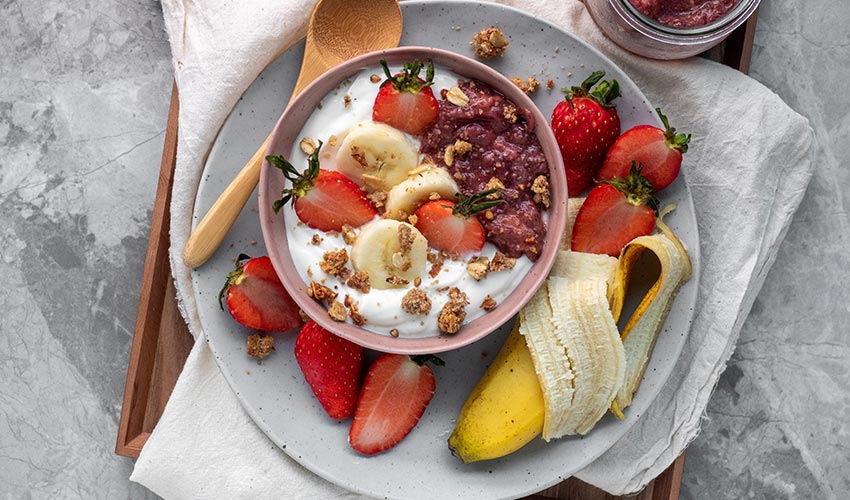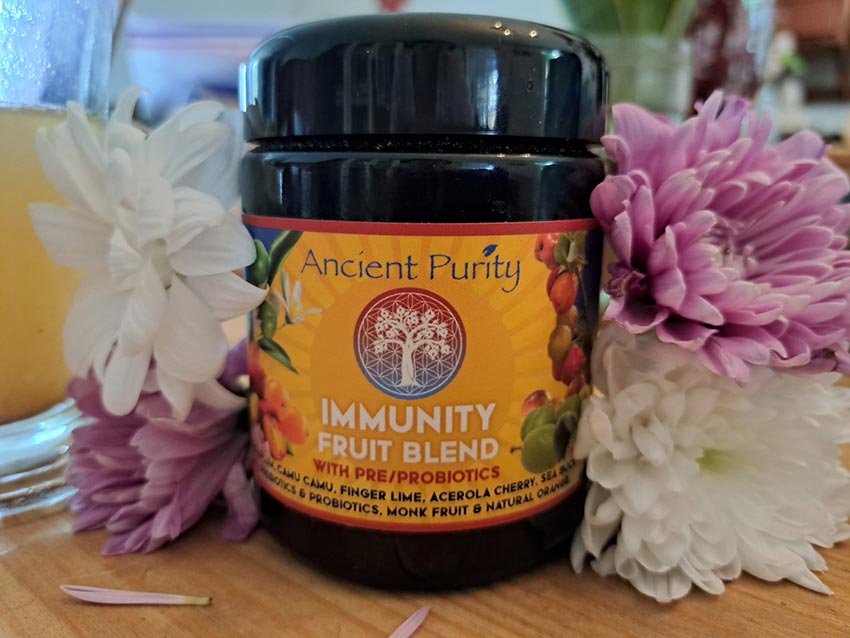The Relevance of Using Prebiotics / Probiotics for Gut Health & Mental Health
The human gut is often referred to as our "second brain" due to its intricate connection with overall health and well-being. Maintaining a healthy gut is vital for digestion, immunity, and even mental health. In recent years, there has been a growing interest in the use of prebiotics and probiotics to support gut health. These dietary supplements have gained popularity for their potential to enhance the composition and function of the gut microbiome. In this article, we will explore the relevance of using prebiotics and probiotics in maintaining and improving gut health and indeed, mental health.
I have personally suffered with an inflamed gut on and off for as long as I can remember. Therefore this topic has always been of interest to me. For my own personal gut health journey would potentially be an entire article of its own, then having children exacerbated my gut health fascination as I watched their gut health affect their day to day lives as well. It’s a really tricky one to get right all the time and I’ve found there are no quick revelations, its all trial and error, elimination and reintroduction and very, very personal to the individual. But discovering things that are good for the bacteria in the gut in general has been such a revelation, so pre/probiotics have been a big find for my own personal gut health journey.

Understanding the Gut Microbiome
The gut microbiome is a vast and diverse community of microorganisms, including bacteria, viruses, fungi, and more, residing in the gastrointestinal tract. These microorganisms play a crucial role in various bodily functions, such as:
Digestion: Gut bacteria assist in breaking down complex carbohydrates, fibre, and other nutrients that our bodies cannot digest on their own.
Immunity: A healthy gut microbiome helps regulate the immune system and protect against harmful pathogens.
Mental Health: Emerging research suggests that the gut-brain axis, the bidirectional communication between the gut and the brain, may influence mood, anxiety, and even cognitive function.
Inflammation: An imbalanced gut microbiome can contribute to chronic inflammation, which is linked to numerous health issues, including autoimmune diseases, obesity, and more.
Prebiotics: The Nourishment for Gut Microbes
Prebiotics are non-digestible dietary fibres found in certain foods that serve as food for beneficial gut bacteria. These compounds pass undigested through the upper gastrointestinal tract and reach the colon, where they are fermented by gut bacteria. Prebiotics promote the growth and activity of beneficial bacteria, such as Bifidobacteria and Lactobacilli.
Common sources of prebiotics include:
- Chicory root
- Garlic
- Onions
- Bananas
- Asparagus
- Oats
- Whole grains
Consuming a diet rich in prebiotic foods can help maintain a balanced gut microbiome, promoting diversity and a healthier gut environment.

Probiotics: The Live Microbial Allies
Gut Health Maintenance: Incorporating prebiotics and probiotics into your diet can help establish and maintain a harmonious gut microbiome, which is essential for optimal digestion and overall well-being.
Immune Support: A robust gut microbiome supports the immune system's ability to defend against infections and maintain a healthy inflammatory response.
Digestive Disorders: Prebiotics and probiotics have shown promise in alleviating symptoms of digestive disorders such as irritable bowel syndrome (IBS), inflammatory bowel disease (IBD), and diarrhoea.
Mental Health: The gut-brain connection is an exciting area of research. Maintaining a balanced gut microbiome through prebiotics and probiotics may potentially have a positive impact on mental health, reducing symptoms of depression and anxiety.
Antibiotic Recovery: After a course of antibiotics, which can disrupt the gut microbiome, using probiotics may help restore the balance of beneficial bacteria.
The relevance of using prebiotics and probiotics for gut health cannot be overstated. A balanced gut microbiome is essential for digestion, immunity, and even mental well-being. Incorporating prebiotic-rich foods and probiotic supplements into your diet can help you maintain a thriving community of beneficial gut bacteria, supporting your overall health and vitality. However, it's crucial to do your individual research, tailored to you, before making significant changes to your diet or supplement regimen, as individual needs can vary based on factors like age, health status, and dietary preferences.

The use of prebiotics and probiotics for mental health is an emerging field of research that has garnered significant interest in recent years. While more studies are needed to fully understand the intricate relationship between the gut and the brain, there is growing evidence to suggest that these supplements can have positive effects on mental well-being. Here are some of the potential health benefits of using prebiotics and probiotics for mental health:
Improved Mood: Some studies have indicated that a balanced gut microbiome may influence mood regulation. Probiotics, particularly those containing strains like Lactobacillus and Bifidobacterium, have been associated with reduced symptoms of depression and anxiety in some individuals. These beneficial bacteria may influence the production of neurotransmitters like serotonin, which plays a key role in mood regulation.
Reduced Stress Response: Prebiotics and probiotics may help reduce the body's physiological response to stress. A healthy gut microbiome can modulate the hypothalamic-pituitary-adrenal (HPA) axis, which controls the body's stress response. By promoting a balanced gut microbiota, these supplements may help individuals better cope with stress.
Enhanced Cognitive Function: Emerging research suggests that a healthy gut microbiome may positively influence cognitive function and memory. Some studies have indicated that probiotics might have a neuroprotective effect and improve cognitive outcomes, particularly in aging individuals.
Reduced Inflammation: Chronic inflammation has been linked to several mental health conditions, including depression and anxiety. Prebiotics and probiotics can help reduce inflammation in the gut and throughout the body, potentially mitigating some of the inflammatory factors that contribute to mood disorders.
Gut-Brain Axis Regulation: The gut-brain axis is a bidirectional communication system between the gut and the brain. A balanced gut microbiome can help regulate this axis, influencing brain function and behaviour. Researchers are exploring the role of gut bacteria in conditions like autism spectrum disorders and schizophrenia.
Support for Mental Health Treatment: Prebiotics and probiotics may complement traditional treatments for mental health conditions. They are being investigated as potential adjunct therapies that can enhance the effectiveness of antidepressant or anxiolytic medications.
Reduced Gastrointestinal Symptoms: Many individuals with mental health conditions also experience gastrointestinal symptoms, such as irritable bowel syndrome (IBS). Prebiotics and probiotics can help alleviate these digestive issues, which can, in turn, have a positive impact on mental well-being by reducing discomfort and improving overall quality of life.
It's important to note that while there is promising research in this area, prebiotics and probiotics are not a replacement for conventional mental health treatments. Individual responses to these supplements can vary, and their effects on mental health may depend on factors like the specific strains of probiotics used, the duration of supplementation, and an individual's unique gut microbiome. I ordered myself a kit to explore my own personal sensitivities in more depth, which required me to send off some hair, then they respond in 2-4 weeks with a very detailed analysis on which foods and drinks are likely to cause you issues. Something like this may be worth investing in if, like me, you’re struggling in this particular area. Otherwise elimination methods such as FODMAP or sugar elimination, are good places to start also.

If you're interested in using prebiotics or probiotics to support your mental health, it's advisable to consult with people that know what they’re talking about such as nutritionists or even some books. It can all help you choose the most appropriate supplements and develop a comprehensive plan that considers your specific health needs and goals. You can even reach out to us at Ancient Purity, between us all we can try and point you in the right direction of places to start and things to try. I started our Pre/Probiotic called the “Immunity Fruit Blend” about a month ago, and I have noticed a big difference in my gut, energy levels, and therefore my mental health on the days that I haven’t taken it. It’s a really lovely supplement to add into your day in either a yogurt or just a teaspoon in some water in the morning. Additionally, a balanced diet rich in fibre and fermented foods can naturally support gut health and may contribute to improved mental well-being.
Its worth noting/mentioning a particular article also published by Harvard Medical School that I found in my research, all of this information here is so relevant to where I’m trying to connect the gut health and mental health. It discusses at great length the link between the gut and emotions such as anxiety, anger, sadness, elation etc, and how this can all trigger symptoms in the gut:
https://www.health.harvard.edu/diseases-and-conditions/the-gut-brain-connection
Taking supplements and changing your diet are all great places to start with gut health, but, in my own experience, so long as you leave your habits, patterns and thoughts unchecked, there is only so far you can get with these external changes. Its great to change what you’re consuming into your body, but this also can go for what you’re consuming mentally too and what you allow to slip past your awareness i.e. your negative beliefs/comments about yourself, your instinctual habits and patterns that are no longer in alignment with who you want to be. So as well as these supplements and dietary changes, try being more mindful of how you’re showing up for yourself, be gentle, be kind and be patient. There will only ever be one YOU, and that’s your gift to the world.





















